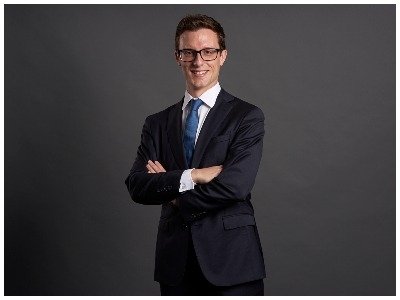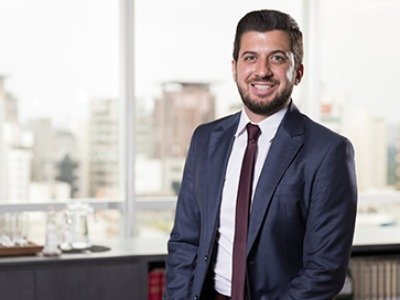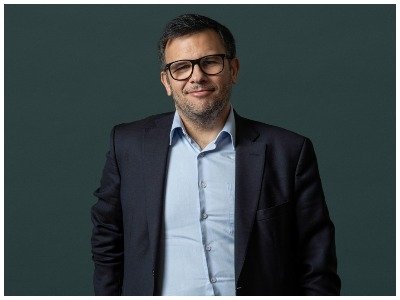Miranda’s man in Houston

Iberian Lawyer travels to Houston, Texas to meet Luís Miranda, director and head of Miranda & Associados’ Miranda Alliance liaison office. During his seven year tenure at the firm, Luís has worked in the Lisbon headquartered office as well as spending a number of months at a time seconded to the Miranda Alliance Gabon and Cameroon offices in Port-Gentil and Douala respectively. We had the pleasure of interviewing Luís and understanding the role and the strategic importance of the US market to Miranda, being the only Portuguese law firm with an office stateside.
 Can you explain how your move to Houston came about and your current role?
Can you explain how your move to Houston came about and your current role?
I joined Miranda in early 2012 and started working very quickly on a rotational basis in the firm’s associated offices in francophone Africa. My rotations led me to Gabon, and then to Cameroon, where I worked respectively at our Port-Gentil and Doula offices, in direct contact with clients who were essentially oil and gas companies and subcontractors in the industry. This contact with Africa, its cultural and business environment, was both demanding but also immensely fulfilling. Providing direct and immediate legal assistance to overcome daily issues related to the oil and gas industry provided me with a significant understanding of the needs, interests and challenges of the various players in this field. Building on my experience in the oil and gas industry, my next career step was to broaden my knowledge of energy and oil and gas law to have a more complete understanding of the challenges and opportunities in this sector. I then decided to come to Houston in July 2015 to attend an LL.M. in Energy, Environment and Natural Resources at the University of Houston Law Center, which provided me a set of invaluable skills to better understand them international energy sector. A few months before graduating, I was approached by Miranda to know if I was interested in joining its Houston office as a director, which I gladly accepted.
How is the Miranda office structured in Houston? Initially the main objective was to service and attract the energy sector to Miranda’s affiliate offices in Africa. Is that still the case? How has the pandemic affected the market?
The firm decided to open an office in Houston in 2005. Its structure has remained identical since day one – Miranda will be sending one of its attorneys to lead the Texas office for a temporary assignment, which usually varies between three to four years. Back in 2005, the main idea was definitely to serve and attract the energy sector to the firm’s affiliate offices in Africa, which has been done with a high degree of success over the years. The oil and gas and energy clients based in Texas and across the Gulf of Mexico have overwhelmingly expressed their support and recognition for the service and proximity provided by the Houston office, namely because of our ability to work in a similar time zone has allowed to improve response times and direct face to face legal advice. However, I believe it is fair saying the firm’s presence in the US is not currently exclusively focused on Houston and on the energy sector. We identified a significant number of opportunities in other areas which were not being properly addressed and our footprint in the country could also be used to diversify the firm’s client portfolio. Before the pandemic, I was travelling on a regular basis to other major US cities to visit clients and potential clients from other sectors and quickly understood there was room to expand our outreach in the country. Let me add that our business development efforts are not exclusively focused on African markets. In the last few years, I also felt a strong appetite for other jurisdictions, such as Portugal and Timor-Leste. There have been a significant number of interesting opportunities arising in both countries which did not remain unnoticed by American companies and individuals. I think it is no secret for anyone the Houston market has been severely affected by the pandemic, particularly in the oil and gas industry. The latter has lost hundreds of thousands of jobs during the coronavirus outbreak, and Texas, the nation’s top oil producing state, has borne the brunt of the industry’s layoffs. Companies had to drastically reduce costs and some international projects were delayed. However, and although we are still not out of the woods, I see a certain optimism amongst our clients and the general business environment is now improving.
You studied for your degree in Law in France, is that correct? Has this been an advantage when attracting business to Miranda’s francophone jurisdictions?
Indeed. I attended a French High School in Lisbon, where I was immersed in a multicultural environment and where the highest academic standards were expected. The desire to seek international environments then led me to carry on my university studies in France. The University of Toulouse, one of the oldest universities in Europe, where I completed my Law degree and a Master’s degree in International Comparative Law (with a specialisation in Contracts, Competition and Regulatory Law), enabled me to focus my early legal life in a challenging but enriching environment, giving me the foundation for the international career I was seeking. Having a French legal background has been a major advantage when attracting business and dealing with clients in the firm’s francophone jurisdictions. As you may know, the applicable legal framework in African French-speaking countries and in France is similar in a significant number of areas. Therefore, being French-educated provided me the necessary tools to better address the issues and challenges faced by the firm’s clients in these countries. However, I would also add that another major advantage comes from the fact that I had the opportunity to spend a significant amount of time based in our associated offices in Africa. In my view, this has always been particularly appreciated by clients based in the US because they know they are dealing with someone who has acquired significant “on the ground” knowledge and is well positioned to better understand and properly tackle legal and practical issues.
How does doing business in countries such as Gabon and Cameroon differ from Angola and Mozambique?
I would say doing business in countries such as Angola and Mozambique is, in many ways, significantly different (for example, foreign exchange and tax issues are differently addressed, although they are both lusophone countries). In my view, that is even more accurate when you compare Portuguese and French speaking countries in Africa. There are some areas where the legal framework and mindset are completely different, such as Tax and Litigation. Therefore, it would be a huge mistake assuming any given legal solution adopted in Gabon will automatically be applicable in Angola, Senegal or the Republic of Congo. I believe it is of vital importance not to treat Africa as a whole, which, unfortunately, I still hear once in a while. If you are not able to understand that each country is unique, even from a cultural standpoint, and has its own way of doing business, I truly do not expect a law firm to succeed in the provision of legal services to its clients in the continent.
Where do you see future opportunities in the Energy and other sectors coming from Houston?
Known as the “Energy Capital of the World”, I believe Houston is evolving to meet the needs of a changing energy industry. A shift is already underway, and if the city plays its cards right, as it did from coal to oil and natural gas, it will continue to be relevant through the transition to a low-carbon future. However, and even though I believe there will be a significant number of opportunities in the transition process, I also think we should keep in mind lessons learned from the past. It will take a long time and a huge investment to move towards new energy sources and the latter will not just replace old ones – they phase in slowly. Take a look at coal – even though we have been moving away from it for more than two decades, it is still part of the energy mix.
Does the fact that you are based on stateside mean that you also focus on generating business from other jurisdictions in the US?
As previously mentioned, when we opened the Houston office back in 2005, the main purposes were to service the firm’s energy clients with their operations in Africa and identify new players who would be interested in investing in the continent. However, and despite the fact the Houston market is still the main focus of our presence in the country, identifying and generating new business opportunities from other US jurisdictions has also been the firm’s priority. There are a significant number of opportunities in the financial and tech services, but also on compliance and trade matters, that deserve our attention and which are now addressed. For example, the African Continental Free Trade Area (AfCFTA), which is the world’s largest free trade area based on the number of participating countries, is predicted to have a substantial effect on African economies and the relationship between Africa and the rest of the world, including theUnited States. This free trade agreement creates a vast market for goods and services from the United States, and with the new administration tipped to focus on multilateralism in Africa, additional initiatives are expected to be announced, accelerating and simplifying a two-way trade and promoting further investment.
Do you have any memorable stories or anecdotes you would like to share with us from your time in the US?
One of the most memorable moments in the US occurred in May 2018, when I was invited to speak at a Local Content Conference in Houston. I was asked by the organisation to provide a comprehensive summary of the recent trends and developments on this matter in francophone African countries. I would be sharing the stage with other speakers who were responsible for presenting their views on local content in the oil and gas industry for other African nations. A few moments before my panel, I was told we were having a special guest arriving within minutes to discuss this topic for Nigeria. I recall seeing a significant number of bodyguards checking the premises, which made me think someone important would be joining us. And then, all of a sudden, I saw the former Nigerian President, Goodluck Jonathan, entering the conference room. It was fascinating hearing firsthand from the person who actually signed into Law the Nigerian Local Content Act in 2010 and how he expected those measures to promote the industrialisation of the nation’s oil and gas industry and encourage the drive to transform Nigeria into a globally competitive country.
How does conducting business differ from Europe?
Even though I do not like generalising and saying there is either a European or an American way of doing business, I must say I have always been amazed by the openness of American businesses to a new collaboration and the business-oriented mindset of American people.
Is there anything you miss from Portugal?
I would say I miss spending time with family and friends. However, with the currently available technological resources, it is much easier to stay in touch with everyone. But for now, Houston is home, and I have been enjoying this outstanding experience in the US.
Have you noticed any impact since the change of presidency in the United States?
From an international standpoint, President Biden said on multiple occasions climate change would be a priority of his administration. He rejoined the Paris Agreement in the first hours of his presidency, which was the inaugural act of his promise to make climate considerations a significant part of his policy priorities. Biden’s administration second step was to recommit to the World Health Organization, rescinding Trump’s notice of intent to withdraw sent in July 2020, which would have taken the US out of the organisation a year later. From an internal perspective, we are also seeing some changes which will have an impact in the upcoming years. For example, Biden unveiled a $2 trillion infrastructure plan late last month that being touted as a “once-in-a-generation investment in America.” Such a plan would create a more resilient and innovative economy, but would also accelerate the fight against climate change, by hastening the shift to new and cleaner energy sources. The current administration also recently unveiled its plan to overhaul the corporate tax code, offering an array of proposals that would require large companies to pay higher taxes to help to fund the White House’s economic agenda. Despite the above, I still believe his top priority is getting the pandemic under control and successfully emerge from the health crisis.
Interview by Michael Heron.
To read the interview in full please download issue N.104 here.












